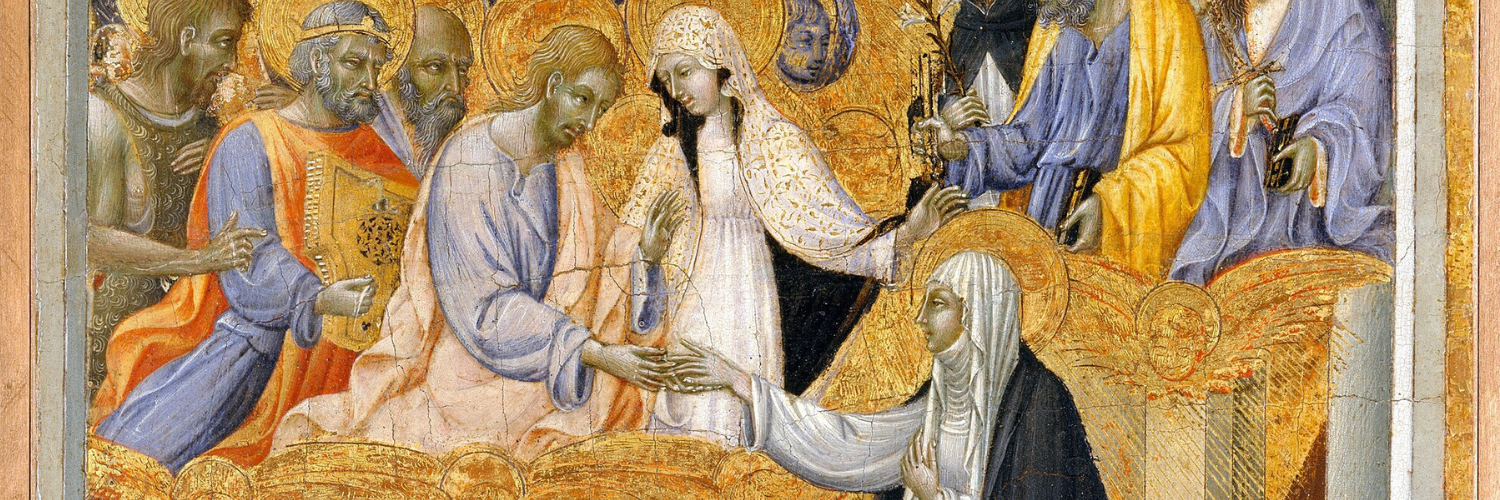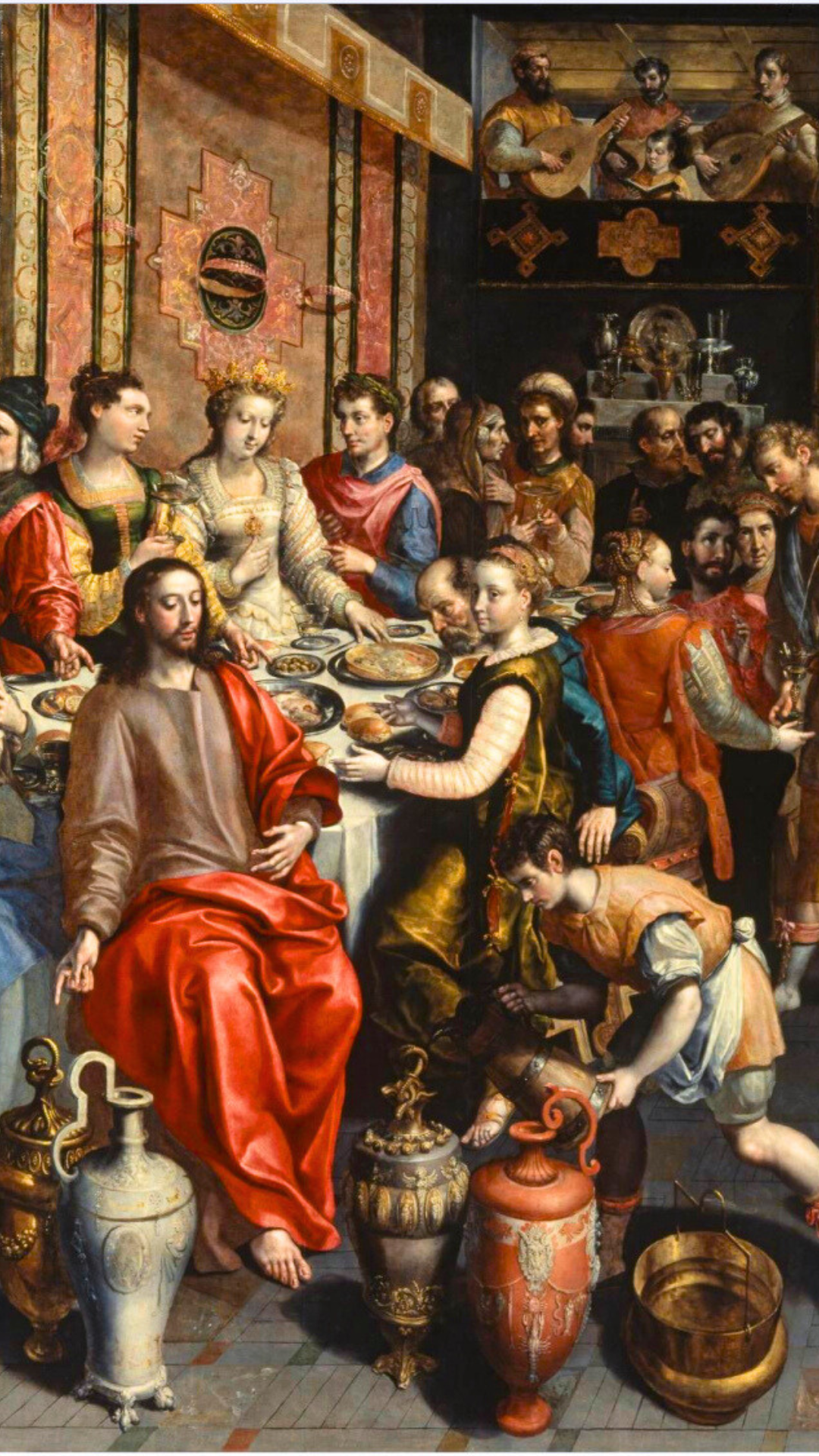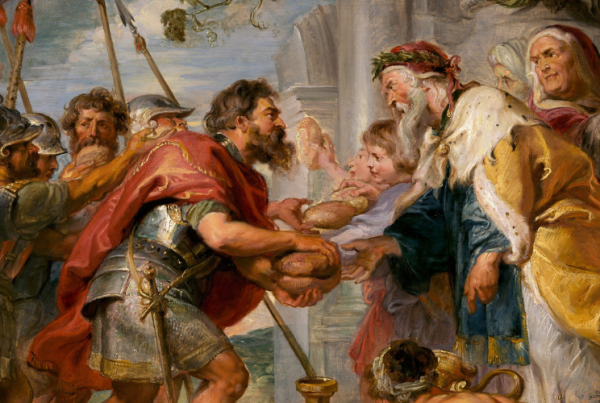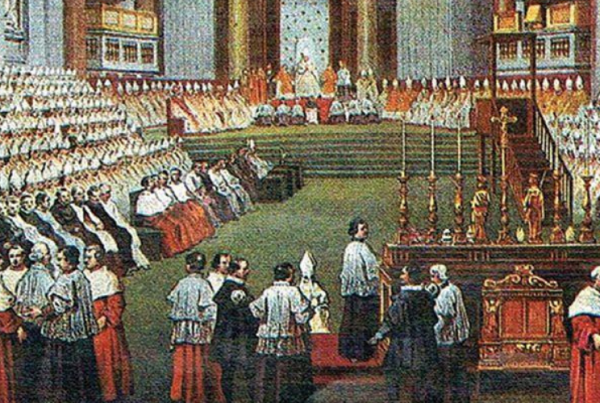
Church is She. Period.
Fr. Paul Stein
Did you ever wonder why we have never called the Church, “he?” We most certainly don’t call the Church zie, ze, xe, or one of the other gender-neutral “pronouns.”[1] The Church is She. Period. Full stop.
The reason is that she is the bride of Christ, and he is most definitely a “he.” Our popular culture often imagines heaven as where we hope to sit on clouds and play harps. Yet, the image Christ frequently gives us in the scriptures is that of a wedding banquet: “Jesus again in reply spoke to them in parables, saying, ‘The kingdom of heaven may be likened to a king who gave a wedding feast for his son’” (Matt 22:1-2). If Jesus is the groom, then the Church is the bride: “Then I saw a new heaven and a new earth. The former heaven and the former earth had passed away, and the sea was no more. I also saw the holy city, a new Jerusalem, coming down out of heaven from God, prepared as a bride adorned for her husband” (Rev 21:1-2).
Part of God’s plan for creation was the human complementarity of male and female, husband and wife, to reflect the close loving union of God with us through Christ. St. Paul describes it in his letter to the Ephesians:
Be subordinate to one another out of reverence for Christ. Wives should be subordinate to their husbands as to the Lord. For the husband is head of his wife just as Christ is head of the church, he himself the savior of the body. As the church is subordinate to Christ, so wives should be subordinate to their husbands in everything. Husbands, love your wives, even as Christ loved the church and handed himself over for her to sanctify her, cleansing her by the bath of water with the word, that he might present to himself the church in splendor, without spot or wrinkle or any such thing, that she might be holy and without blemish. So [also] husbands should love their wives as their own bodies. He who loves his wife loves himself. For no one hates his own flesh but rather nourishes and cherishes it, even as Christ does the church, because we are members of his body. “For this reason a man shall leave [his] father and [his] mother and be joined to his wife, and the two shall become one flesh.” This is a great mystery, but I speak in reference to Christ and the church. (Eph 5:21-32)
Heaven is thus, a mystical marriage.
In Christ, the natural institution of marriage,
built into creation, is elevated to a sacrament.
Heaven is thus, a mystical marriage. In Christ, the natural institution of marriage, built into creation, is elevated to a sacrament. The marriage between a baptized man and a baptized woman embodies and points to the reality of heaven. As Christ and the Church cannot fail to forever love each other, the sacrament of marriage is indissoluble:
Some Pharisees approached him, and tested him, saying, “Is it lawful for a man to divorce his wife for any cause whatever?” He said in reply, “Have you not read that from the beginning the Creator ‘made them male and female’ and said, ‘For this reason a man shall leave his father and mother and be joined to his wife, and the two shall become one flesh’? So they are no longer two, but one flesh. Therefore, what God has joined together, no human being must separate.” They said to him, “Then why did Moses command that the man give the woman a bill of divorce and dismiss [her]?” He said to them, “Because of the hardness of your hearts Moses allowed you to divorce your wives, but from the beginning it was not so. I say to you, whoever divorces his wife (unless the marriage is unlawful) and marries another commits adultery.” (Matt 19:3-9)[2]
For the Church, the creation of humans as male and female is a gift from God that ultimately finds its fulfillment in heaven.

What This Means For Us
We live in a culture that still celebrates weddings with great fervor. That wedding to which we should ultimately look, however, is heaven. If brides and grooms work feverishly and spend large amounts of money to have a wonderful earthly wedding, then we should be willing to give everything we have to be a part of the heavenly marriage banquet. That is the one marriage in which bride and groom will live happily ever after.
Footnotes
1. This author has used – when an application form requires pronouns – who & what. Abbott and Costello were ahead of their time.
2. Annulments come from the clause “unless the marriage is unlawful” which has to do with the distinction between the Greek words porneia and moicheia.
For Further Reading On This Topic



